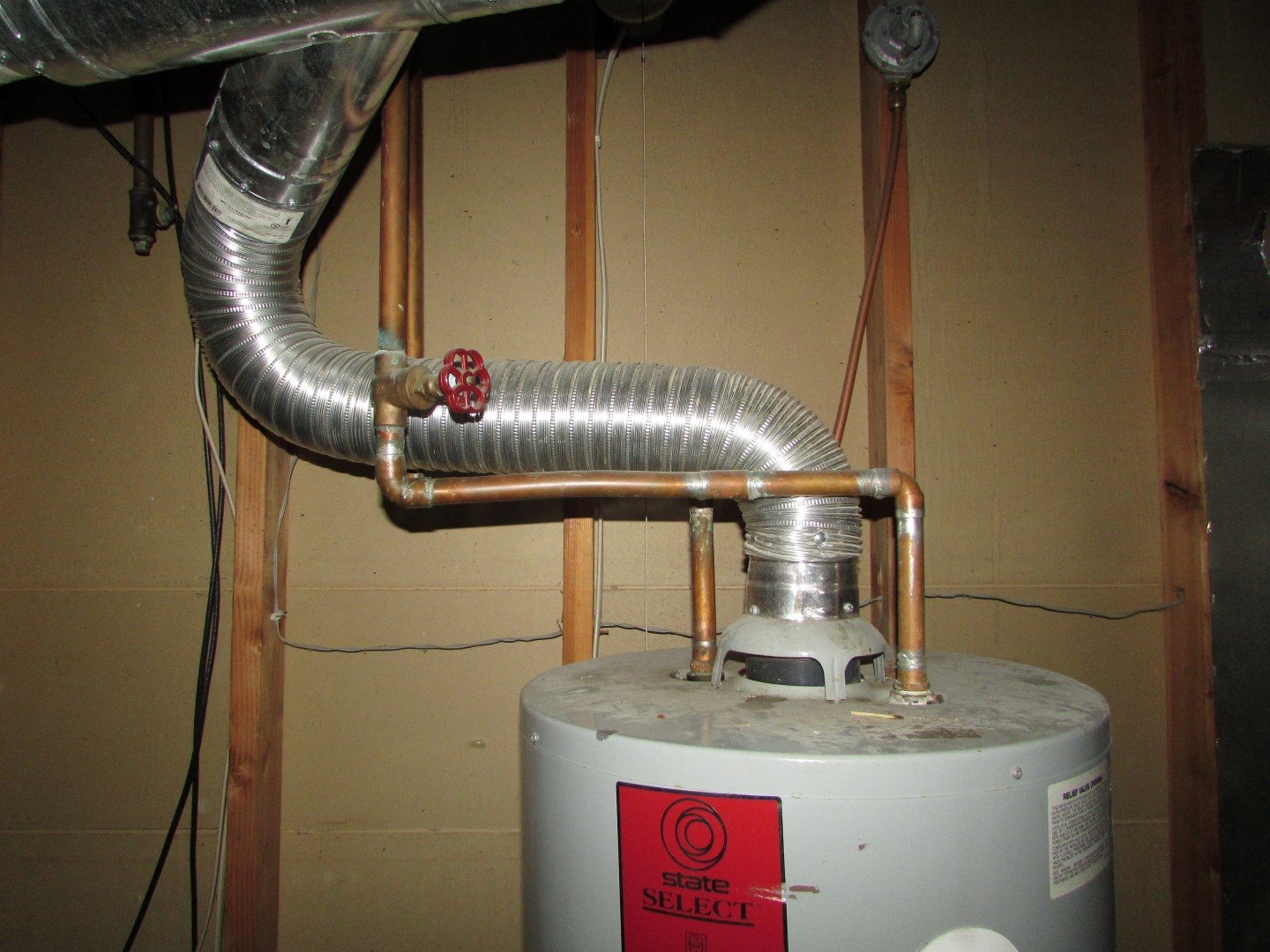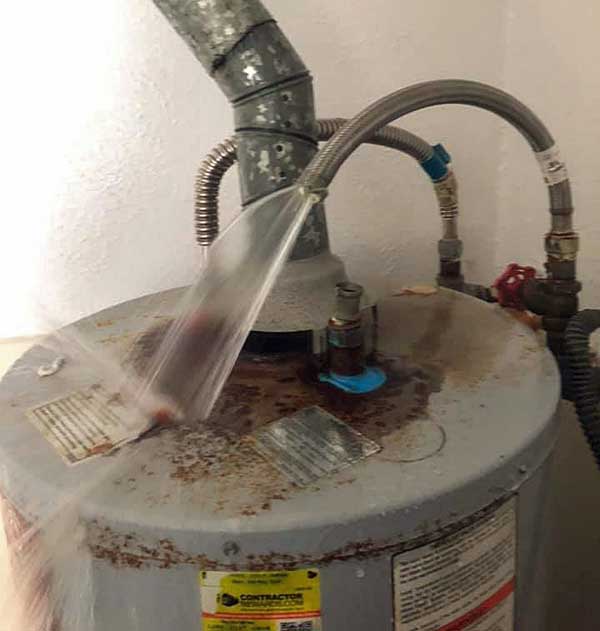Yes, you can use flexible hoses on water heaters, but they must meet specific standards. Ensure the hoses are rated for hot water and pressure.
Flexible hoses provide a convenient and efficient solution for connecting water heaters. They are often easier to install and can accommodate tight spaces. Choosing the right flexible hose is crucial for safety and performance. High-quality hoses can withstand high temperatures and pressures, making them suitable for water heater applications.
Always check local plumbing codes and manufacturer recommendations before installation. Proper installation will help prevent leaks and extend the lifespan of your water heater. Understanding the advantages and limitations of flexible hoses ensures you make informed decisions for your plumbing needs.

Credit: structuretech.com
Page Contents
Introduction To Flexible Hoses
Flexible hoses are important for water heaters. They connect the water supply to the heater. Many types of hoses are available, including:
| Type of Hose | Material | Use |
|---|---|---|
| Stainless Steel | Metal | Durable and long-lasting |
| Rubber | Rubber | Flexible and lightweight |
| PVC | Plastic | Cost-effective and easy to install |
Using flexible hoses has many benefits. They can reduce stress on connections. Their flexibility allows for easy movement. Installation often requires less time and effort. Overall, flexible hoses are a great choice for water heaters.
Water Heater Connections
Water heaters often use a traditional rigid pipe setup. This setup includes metal or PVC pipes. These pipes are strong and reliable for water flow. They can withstand high pressure and temperature.
Switching to flexible hose solutions can make connections easier. Flexible hoses are lighter and easier to install. They can bend and fit into tight spaces. This makes them ideal for tricky plumbing situations.
Flexible hoses are made from durable materials. They resist corrosion and are less likely to leak. Using these hoses can save time and effort during installation.
Flexible Hose Materials
Stainless steel braided hoses are popular for water heaters. They resist corrosion and are durable. These hoses can handle high pressure and temperatures well. Their flexibility makes installation easy.
Corrugated copper hoses offer another option. They are also strong and can withstand heat. Copper hoses are resistant to scaling and mineral buildup. They provide good flow rates for water systems.

Credit: terrylove.com
Installation Considerations
Flexible hoses can be used with water heaters, but compatibility is key. Check the specifications of your water heater first. Not all models support flexible hoses. Ensure the hose is rated for hot water use.
Proper sizing and fitting are crucial for safety. Hoses must match the diameter of the inlet and outlet connections. Use appropriate fittings to prevent leaks. A good fit ensures efficient water flow.
Always consult the manufacturer’s guidelines. This helps avoid problems during installation. Regularly inspect hoses for wear and tear. Replace any damaged parts immediately to maintain safety.
Safety Concerns
Using flexible hoses on water heaters raises safety concerns. These hoses must meet specific pressure ratings. They also need to handle high temperature limits. Check the specifications before installation.
Regular inspection is key to maintaining safety. Look for any signs of wear or damage. Replace hoses showing cracks or leaks immediately. Routine maintenance can prevent major issues.
| Aspect | Details |
|---|---|
| Pressure Rating | Must match or exceed water heater requirements. |
| Temperature Limit | Should withstand high temperatures without breaking. |
| Inspection Frequency | At least once a year for safety. |
Advantages Of Flexibility
Flexible hoses provide great ease of installation. They can easily bend around tight spaces. This makes connecting to your water heater simple. No need for complicated tools or techniques.
Flexible hoses can also absorb vibrations and movements. This helps protect your water heater from damage. Less stress on connections means a longer lifespan. Using these hoses improves overall safety and functionality.
Potential Drawbacks
Flexible hoses can have serious drawbacks when used with water heaters. One major issue is their vulnerability to corrosion. Over time, these hoses can rust and weaken. This can lead to leaks and water damage.
Another concern is the risk of kinking and damage. Flexible hoses can bend easily. If they kink, water flow may stop. This can cause pressure to build up, leading to bursting or failure.
Using flexible hoses might seem easier, but the risks often outweigh the benefits. Always consider the long-term effects before making a choice.
Regulatory Standards And Codes
Using flexible hoses for water heaters must meet specific regulatory standards. Building codes ensure safety and efficiency. Always check local codes before installation.
Manufacturer recommendations are crucial. They provide guidelines on compatible materials. Certifications from recognized bodies guarantee quality and safety.
| Aspect | Details |
|---|---|
| Building Codes | Follow local regulations for installation. |
| Manufacturer Recommendations | Use hoses as per the manufacturer’s guidelines. |
| Certifications | Check for safety and quality certifications. |
Case Studies And Real-world Examples
Many homeowners successfully use flexible hoses for water heaters. These hoses are easy to install and can fit in tight spaces. One case involved a small utility room where standard pipes would not fit. The flexible hose worked perfectly.
Common issues include leaks and kinks in the hose. Leaks often happen at connections. Regular checks can help catch these problems early. Kinks can restrict water flow, causing issues. Keeping the hose straight during installation prevents this.
| Issue | Solution |
|---|---|
| Leaks | Check connections and replace any damaged parts. |
| Kinks | Ensure proper installation and avoid sharp bends. |
Conclusion And Best Practices
Choosing the right hose for your water heater is crucial. Flexible hoses can be convenient, but they may not always be safe. Consider the materials used in the hose. They must withstand high temperatures and pressures.
Check for kink resistance and durability. These features ensure a longer lifespan. Inspect hoses regularly for wear and tear. Leaks can lead to serious damage.
Always follow manufacturer guidelines for your specific water heater. Using the wrong hose can void warranties. Consult a professional if unsure about your choice.
In the long run, investing in quality hoses pays off. They help maintain efficiency and safety. Make informed choices to avoid costly repairs later.

Credit: www.youtube.com
Conclusion
Using a flexible hose on a water heater can be convenient and practical. Ensure the hose meets safety standards to avoid leaks. Regular inspections are essential to maintain functionality and prevent issues. Always consult a professional if you’re unsure. Make informed decisions for a safe and efficient water heating system.
